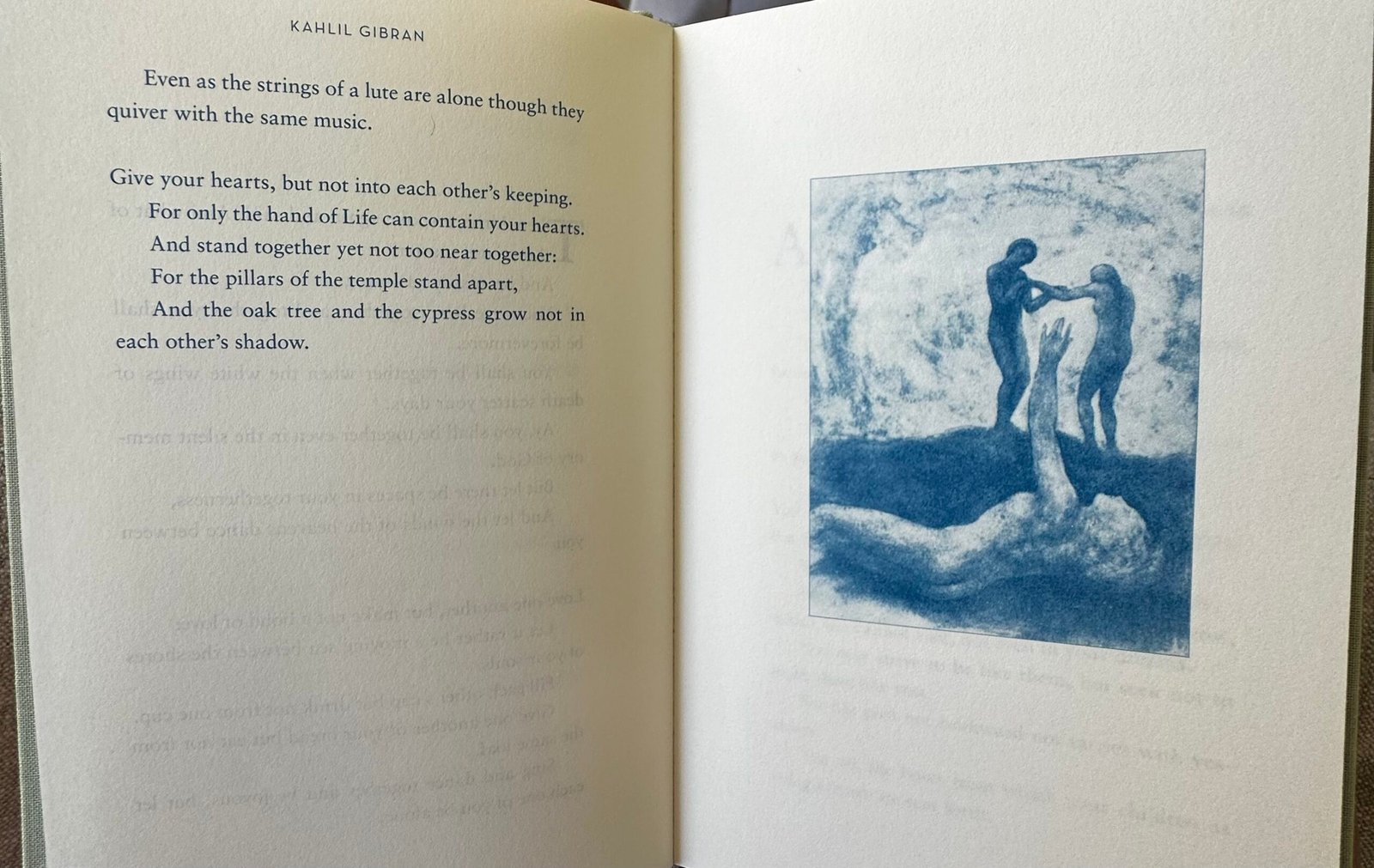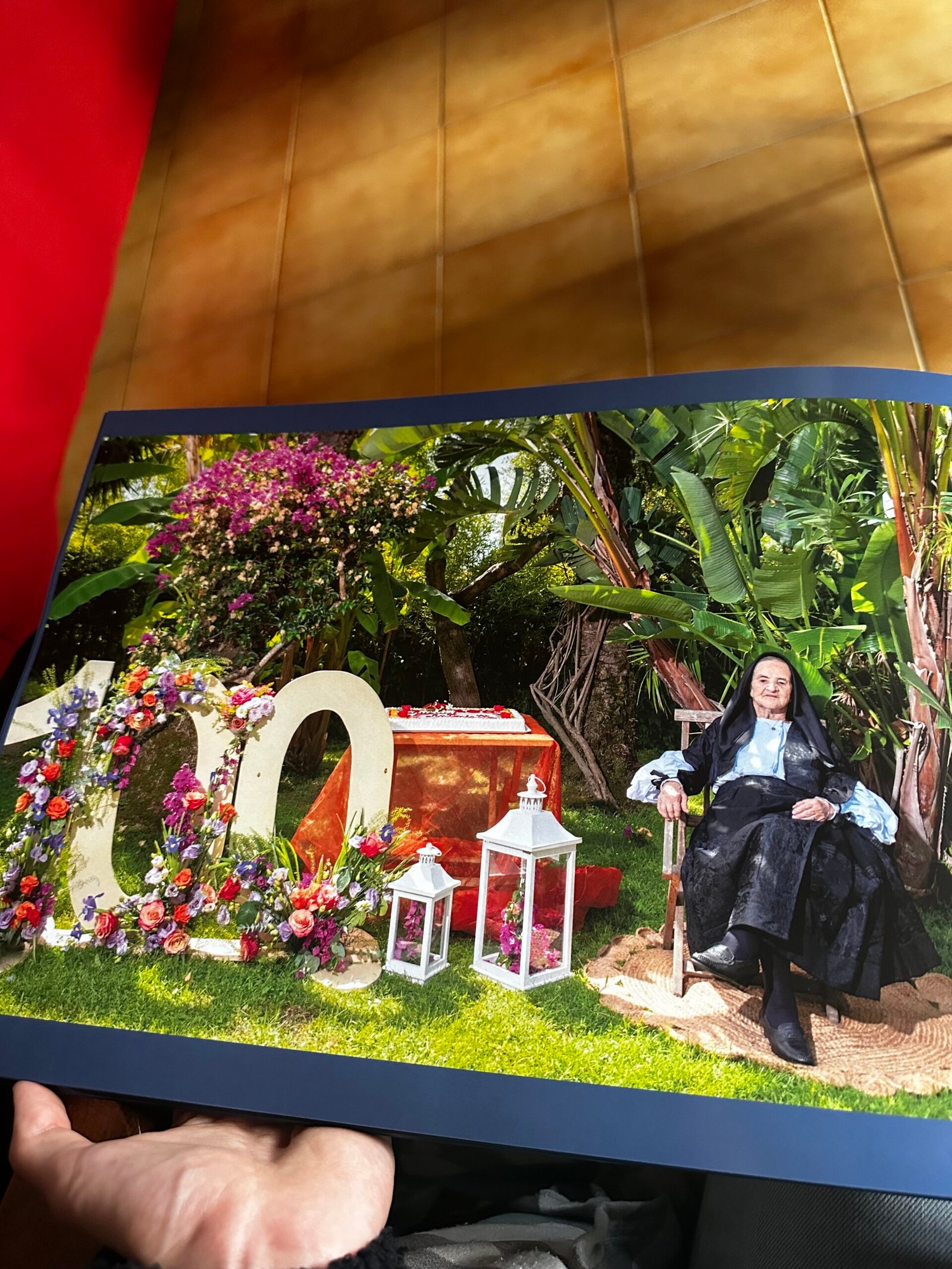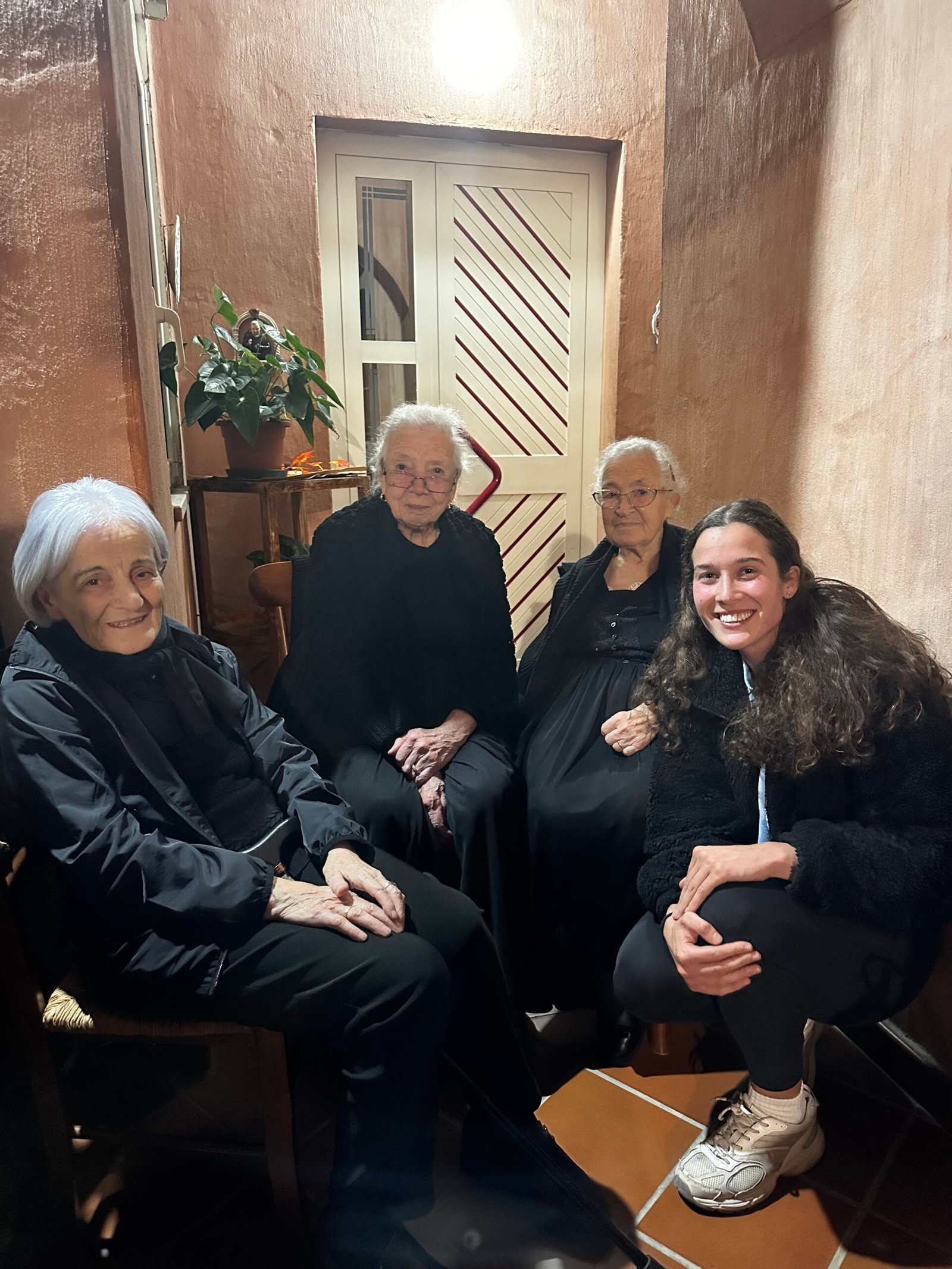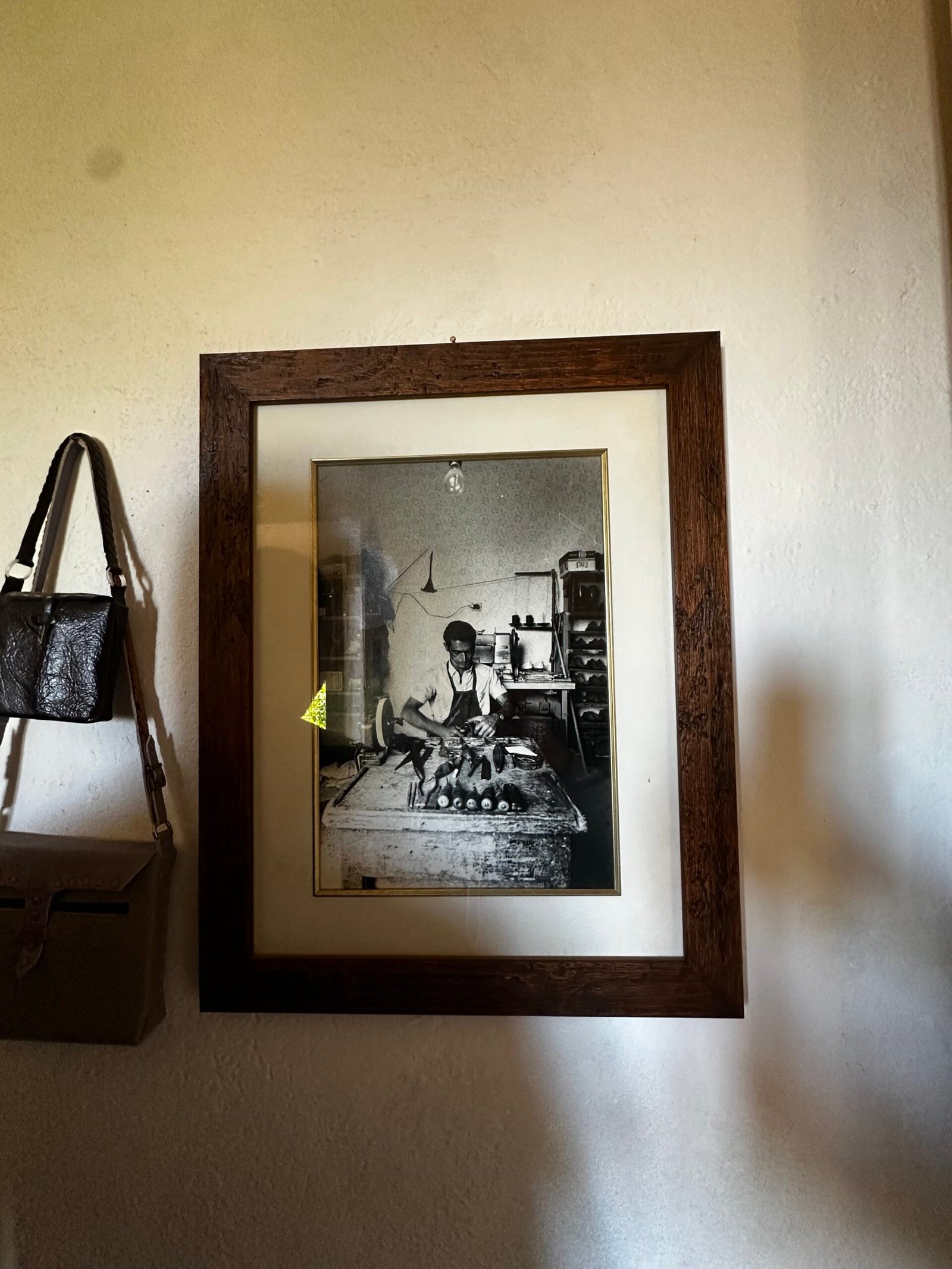“Then Almitra spoke again and said, and what of Marriage, master?
And he answered saying:
You were born together when the white wings of death scatter your days.
Ay, you shall be together even in the silent memory of God.
But let there be spaces in your togetherness,
And let the winds of the heavens dance between you.
Love one another, but make not a bond of love:
Let it rather be a moving sea between the shores of your souls.
Fill each other’s cup but drink not from one cup.
Give one another your bread but not eat from the same loaf.
Sing and dance together and be joyous, but let each one of you be alone,
Even as the strings of a lute are alone though they quiver with the same music.
Give your hearts, but not into each other’s keeping.
For only the hand of Life can contain your hearts.
And stand together yet not too near together:
For the pillars of the temple stand apart,
And the oak tree and the cypress grow not in each other’s shadow.”
— Khalil Gibran, The Prophet
Those words were written by Khalil Gibran in The Prophet. I couldn’t help but think of them while I was reading The Road Less Traveled by M. Scott Peck. Peck’s book is a self-help guide about personal growth and the spiritual journey, challenging the way we think about parenting, love, relationships, and our own development. His concept of what real love is and what it takes to create a successful relationship has challenged me as I navigate this world, learning more about myself and what true love really means.
Peck defines love as “the will to extend oneself for the purpose of nurturing one’s own or another’s spiritual growth.” He explains that real, genuine love and a truly successful marriage can only exist between two strong, independent people. This means that being solely dependent on a partner is not real love. True love is choosing to extend yourself to nurture the beloved’s spiritual growth. Yet, we often fall into the pattern of trying to change or control someone in order to protect ourselves from being hurt. But is that really love? If we try to control the other person, we are acting out of self-interest rather than out of love for their growth..
These concepts have really touched me because I have often found myself falling into this very trap of trying to control situations so that I won’t feel pain. But is that real love? Real love is supporting, encouraging, and believing in the beloved’s uniqueness so they can go out into the world, live to their highest potential, and find a life full of meaning. In doing this, you also grow, because by extending yourself, you expand your own limits and you can never return to the person you were before. Real love accepts the other person exactly as they are. You must first love yourself and commit to your own spiritual growth before you can truly commit to the love and spiritual growth of another person. This is also central to Peck’s definition of love. Loving yourself means continually pouring into your own growth, and that has been the journey I’ve been on. As you walk this spiritual path of self-love and growth, you begin to understand more clearly what you will and will not accept from another person.
Another book that has challenged my thinking is Freedom from the Known by Jiddu Krishnamurti. He explains that to love someone while fearing what they might do is not truly love, because in that fear you are only looking out for yourself. Real love is unconditional and accepts faults. But does this mean that even if we truly love someone, certain behaviors or actions should go unchecked? This is the blurred line that only those within the relationship can determine.
I think The Road Less Traveled has helped me understand what Gibran has been trying to tell us in his book, that yes, we can love, but also be independent as we continue our own spiritual journeys. I think I am finally understanding what he means when he says, “Sing and dance together and be joyous, but let each one of you be alone, even as the strings of a lute are alone though they quiver with the same music.”



